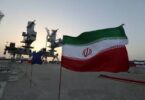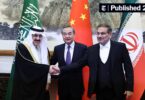The United States has always applied “carrot and Stick” policy in its relations with Pakistan, sometimes ditching the latter after the achievement of its strategic goal in this region. The Soviet troops’ withdrawal from Afghanistan scenario in late 1980s is a glaring example of it. US President Donald Trump on Thursday said that he looks forward to meeting the new leadership of Pakistan but at the same time accused Islamabad of housing the enemy.
Trumps remarks came when he was making a point about his ongoing disagreement with congressional law makers over allocation of finances that has led to partial shut down of US government. While addressing a cabinet meeting, Trump reminded his audience that it was him, who had discontinued the funds given to Pakistan, saying that he stopped doling out $ 1.3 billion assistance to Pakistan. He said a lot of people do not know because they have not been fair so far to us.
As an apparent measure of damage control and mending ruptures in bilateral relations, the US president last month wrote a letter to the Prime Minister Imran Khan seeking Pakistan’s assistance in a negotiated settlement of Afghanistan. The US President said he wants to have better relations but leveled a great allegation in the same breath.
President Trump said, “We want to have great relationship with Pakistan but they house our enemy, they take care of the enemy.” “We cannot just do that. So I look forward for interaction with the new leadership in Pakistan.” He has been criticizing Pakistan since he launched his south Asia and Afghanistan strategy despite multiple attempts by both governments to fix the problem.
President Trump, while talking about the reasons for ending over a billion dollar annual aid for Pakistan at the beginning of the New Year, had said that the country did not do “a dam thing for us.” Subsequently, the Prime Minister Imran Khan led the sharp reaction by political leaders to Trump’s tirade against Pakistan by hinting a review of foreign policy options and asking the US President to introspect on the real reasons for American failure in Afghanistan. The tit for tat response from the Pakistani political leadership appeared to have worked and Trump’s stance on Pakistan has softened considerably. He acknowledged in his letter to the Prime Minister last month the war in Afghanistan had cost both the US and Pakistan.
Unlike its predecessor government of PML-N, the foreign policy agenda of Pakistan Tehrik-i-Insaf government is fairly clear and it keeps on board the state institutions. It has the capacity in Foreign Service and other relevant state institution to implement its agenda. Pakistan and the US positions appeared to have converged as the latter has belatedly accepted the need for a political settlement in Afghanistan and had opened direct talks with Afghan Taliban which Pakistan facilitated. However, the entire negotiated process, including the one initiated by the US special envoy Zalmay Khalilzad may be thrown into disarray by Trumps announcement to withdraw 7000 troops from Afghanistan. Sensing the US abandonment, and unrelenting Taliban pressure, the Kabul Unity government and even Afghan National Army may collapse, reviving the likelihood of another civil war.
Pakistan’s diplomacy must work simultaneously with the US and China, Russia, Iran and Saudi Arabia to prevent civil war and promote viable political settlement in Afghanistan. A conference involving these states and major Afghan parties could be convened to draw up the broader parameters of such a settlement. The foreign minister Shah Mahmood Qureshi has recently under taken a shuttle diplomacy and visited Kabul, Tehran, Beijing and Moscow to discuss the changing situation in Afghanistan. The US troops’ withdrawal may render bleak the prospects of ceasefire between the Afghan government Pakistan’s diplomacy of outreach in the neighborhood appears to ward off a situation akin to the withdrawal of Soviet troops from Afghanistan in 1989. It is time that Washington stops using the recipe of blame game and double standards and take workable measures for a political settlement in Afghanistan.






